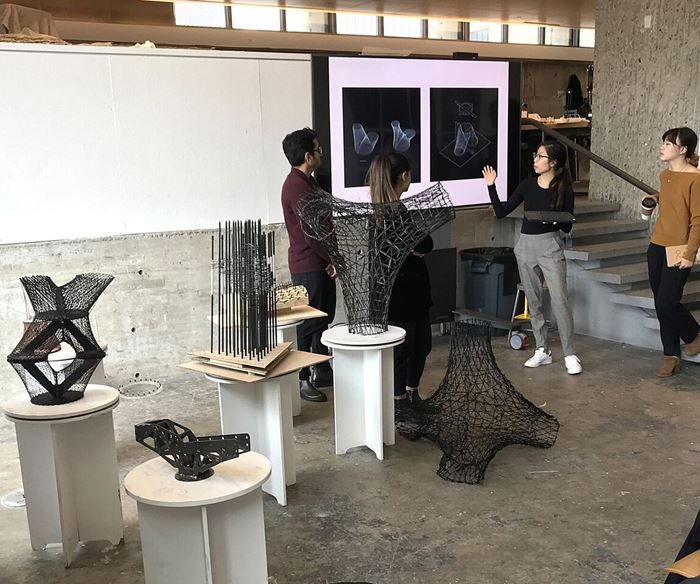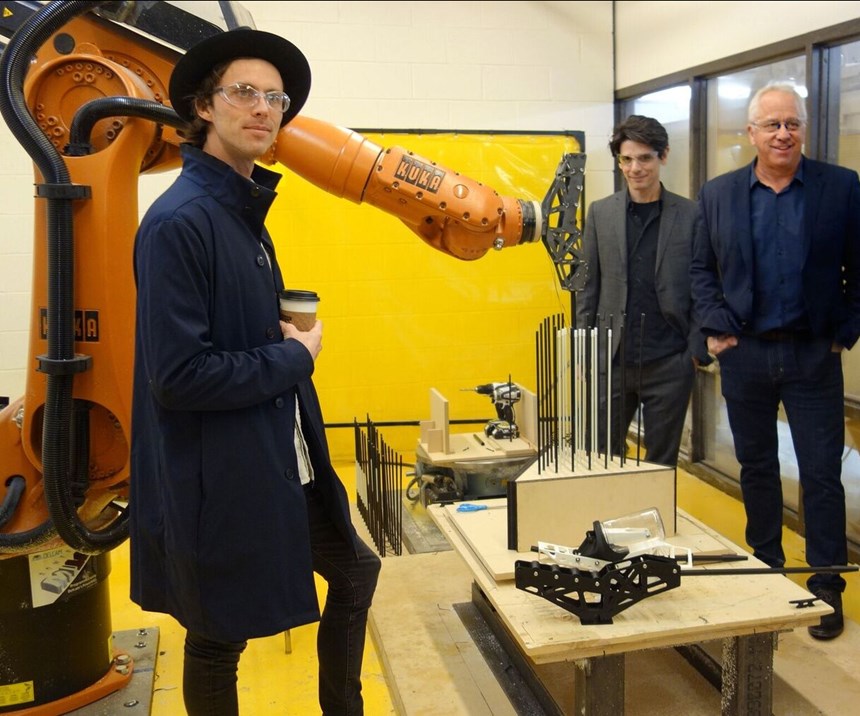LeMond Composites and Yale School of Architecture explore carbon fiber robotic fabrication
LeMond Composites has partnered with the Yale School of Architecture to explore new methods of computing and manufacturing structures using advanced carbon fiber technologies.
LeMond Composites (Oak Ridge, TN, US) has partnered with the Yale School of Architecture (YSoA, New Haven, CT, US) to explore new methods of computing and manufacturing structures using advanced carbon fiber technologies.
A new seminar at the architecture school entitled “Computational Composite Form: computational design & carbon fiber robotic fabrication” was led by YSoA Professor Ezio Blasetti. The YSoA students built computational tools and material prototypes using the robotic tools of the YSoA fabrication studio. The student projects tested manufacturing strategies and material properties of carbon fiber.
Founded Tour de France champion Greg LeMond, LeMond Composites seeks to offer solutions for high volume, low-cost carbon fiber. LeMond claims their new manufacturing process will help to enable reduced prices and expanded global production capacity, with the goal of making carbon fiber more accessible for the next generation of designers and builders.
The partnership between YSoA and LeMond will continue as students continue to develop their work into 2019.
Related Content
-
JEC World 2023 highlights: Innovative prepregs, bio-resins, automation, business development
CW’s Jeff Sloan checks in with JEC innovations from Solvay, A&P, Nikkiso, Voith, Hexcel, KraussMaffei, FILL, Web Industries, Sicomin, Bakelite Synthetics, Westlake Epoxy and Reliance Industries.
-
Rocket Lab begins installation of large AFP machine for rocket production
The 99-ton AFP machine, custom-designed and built by Electroimpact, is claimed to be the largest of its kind, expecting to save around 150,000 manufacturing hours in the Neutron rocket’s production process.
-
Daher CARAC TP project advances thermoplastic composites certification approach
New tests, analysis enable databases, models, design guidelines and methodologies, combining materials science with production processes to predict and optimize part performance at temperatures above Tg (≈150-180°C) for wing and engine structures.















